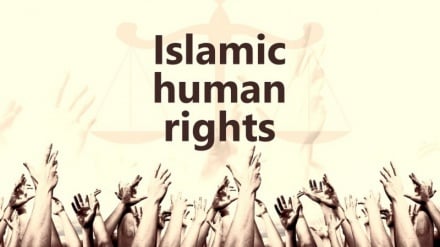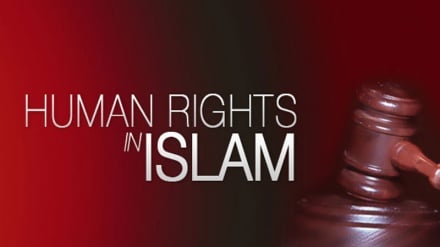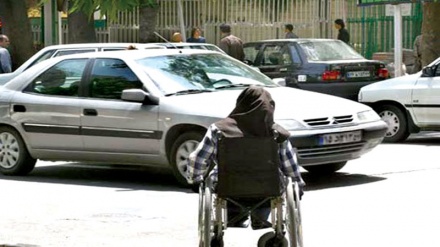Islamic Human Rights (41)
Welcome to this week’s episode of the series Islamic Human Rights. Today, we become familiar with avenues presented by Islamic Human Rights to guarantee the right to security.
Last week, we studied the right to security. Today, we continue this discussion. Individuals live within the community, while maintaining a number of natural and human rights and freedoms. These God-given rights demand recognition, respect, and support for members of the community, guaranteeing their security. Meanwhile, there are a number of guarantees within laws, which fulfill the legal rights of the individuals. The first important guarantee in this regards is the rule of law.
Rules and regulations are set by qualified officials; regulating the relations between individuals, community, and government, while establishing equal rights and obligations for all. Law is the integral part of any structure; given that it can restrict and discipline the diverse demands of mankind, and secure stability and continuation of collective life; such that if there were no rules and regulations, the members of the community would have been baffled and would have not known their obligations and how to fulfill them. In fact, law determines the essential duties and norms. So, any given community is need of laws for its existence and survival, and the social structures’ survival and efficiency are indebted to laws.
The principle of the rule of law is an important legal principle; according to which the implementation of all political, administrative, and judicial affairs, in addition to adoption of decisions by officials, should be based on rules and regulations. This principle prevents any suppressive rule.
The set of values and rights is considered appropriate when they fully take into consideration all of the aspects of human life, and aim to assist mankind to attain eternal prosperity. Such a system never forsakes mankind because any action in any time and location and at any level leaves a positive or negative impact on man’s quest to attain eternal prosperity.
In the view of sacred religion of Islam, appropriate laws are the ones which are based on ethical virtues and in line with the goal of attainment of eternal prosperity of mankind.
An Islamic community, like any other community, needs laws in order to maintain its order and harmony. This is because absolute and unlimited freedom leads to deterioration of the community. Now, the question which is raised is that who sets these boundaries and what sort of laws guide the Islamic Ummah toward their goal?
According to the view of divine religion of Islam; given that rules and regulations should match the interests of mankind in the Hereafter, and should be compatible with the actual interests of mankind, which the human wisdom is incapable of achieving; therefore man cannot and shall not set laws, and only God maintains the right to set rules of regulations. This is because God is omnipotent and is aware of humans’ interests in the material world and Hereafter. Secondly, God is not impacted with personal intentions, and thirdly God is the one and only creator the universe. Thus, within the political structure of the sacred religion of Islam, in contrast to Western schools of thought, there is no room left for man to set rules and regulations, and human beings should only implement divine instructions and laws.
Part of these rules and regulations are fixed and unchangeable, while another part of these laws are variable and are based on temporal and spatial conditions. Through the era of major occultation of the 12th Infallible Imam of the Prophet of Islam’s Household, Imam Mahdi (May God hasten his reappearance), the authority to determine laws are granted to those, who are closer to the Infallible Imam in awareness about the community’s interests, piety, and justice.
One of the important features of divine laws is their bond with ethics. What leads to effectiveness of laws in personal and social levels is the presence of morality and personal and collective commitment to abidance by the law.
The innate morality of Islam leads to the wholehearted influence of Islamic teachings on people. In the belief of the faithful, divine instructions are based on the actual interests and ethical values of man. The establishment of ethical virtues in the soul of individual, and the respect that the individual maintains toward ethical virtues, leads to his commitment to the laws. A moral individual and community are naturally committed to implementation of rules and regulations.
The divine religion of Islam maintains rules and regulations for every aspect of human life, such as social laws. Islam even maintains laws about thoughts that cross individuals’ minds.
For instance, the 12th ayah of Surat Al-Hujurat notes: “O you who have faith! Avoid much suspicion. Indeed some suspicions are sins.”
Non-compliance with Islamic rules and regulations is to the detriment of the community.
Social life aims to meet man’s material and spiritual needs, via assistance and mutual cooperation of the individuals. This mutual cooperation, in itself, is need of a set of rules and regulations which determine the share of the individuals and groups of the related community’s achievements, while also presenting a number of solutions for the possible disputes in the community. The powerful structure that observes these rules and regulations is the ruling system.
Undoubtedly, the rule of an Islamic establishment, like any other system, is in need of people’s presence and their unity over the pivot of righteousness. People, upon the acceptance of the governance of the Islamic ruler, materialize the rule of God in the society. Thus, the Islamic rule never materializes in the absence of people’s demand and resolve.
In fact, an Islamic ruling system is a ruling system which is popular and not based on resorting to force. The Islamic ruling system takes shape based on people’s interest in the divine religion of Islam, and the rule of Islam.
MR/MG


